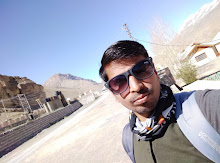Humans are social beings and have always lived together, grouped initially by family connection and then by other ties or interests. Such grouping into communities is important for every human being. They give a sense of belonging: a human environment in which to express oneself, interact and grow. Ultimately, all of us belong to the global community.
The
purpose of a community is to serve human needs. Normally, the parameters in
which a community is formed will be such that the community will contain people
who have differences on at least one level, be it age, nationally, idealogy,
culture or profession. On the other hand, it is also true that all these
differences can be transcended by acknowledging the common denominator of the
human worth of every individual.
The
various superficial aspects of commonality or like-mindedness are valid reasons
for the formation of a community, and it is the natural propensity of every
individual to find and enjoy those aspects of his or her nature or physical
circumstances that are shared with others, but these factors are not the
ultimate source of human identity.
A homogeneous group that is able to develop an awareness that goes beyond its more obvious homogeneity is able to extend its own boundaries and include other people without losing its identity. A strong and stable society is not one that seeks to define itself by identifying the ways in which it is different from others, by insisting on uniformity, but one that is willing and able to accommodate diversity within a common framework of the larger realities of life.
The worth of the individual is one such reality. Awareness of self-worth
leads naturally to self-respect and respect for others is born from respect for
the self.
Any
community that is to survive and flourish must respond to the needs of its
members as human beings and seek to harmonise personal interests and those of
the community as a whole. A community which fails to take account of human
nature will eventually defeat its own purposes and, rather than integration,
will suffer disintegration.
A
community must also care for its natural environment and recognise its
interdependency with other communities. Society is like a mosiac with the
different patterns in its design being communities of varied culture, history,
traditions and philosophy. Each segment has its own beauty but much of the
beauty is derived from its connection to and relationship with the larger whole
of which it is a part.
To live in society is to accept the moral obligation of at least being conscious that society comprises other human beings with rights and desires that must be acknowledged and accommodated, as far as possible.
Members of any society will
vary in their understanding, attitude, and perception of life and ways of
living but must develop and observe some norms, patterns and commonly-held
values in their relationships and interactions with another. Social integration
requires the appreciation rather than the elimination of differences.
Integration
must be on the basis of free will and respect for others rather than being
imposed in suppression of a sense of discrimination, injustice and difference.
Indeed, some differences of opinion or policy are inevitable in a democratic
society which respects freedom of thought and so the fabric of which society is
built must be at once strong, accommodating and flexible.
Just
as respect is required from those who have previously participated in others’
exclusion or deprivation so also those who feel marginalized, disadvantaged or
discriminated against must develop a lucid awareness of their self-respect and
rights in order to remove any consciousness of unworthiness, or being a victim
or outcast, and reassert their dignity.
The
growth and development of moral values is not quantifiable in the same way as
productivity or a national economy but these values are necessary for the
maintenance of the social sub-structure. However insiginficant it may seem,
even the smallest of courtesies or expressions of civility can make life easier
and pleasanter for others, as well as contributing to the smooth functioning of
society overall.
THE VISION OF
AND VALUES FOR A BETTER SOCIETY
Spiritual Power
Will Bring Success
Today
when we look at the world-scenario, we find that a sea-change has taken
place. There has been a rapid slide-down
of society along the path of morality and, of late, the rate of fall in the
standards of public, professional and private morality has accelerated to reach
shockingly low levels.
UTMOST
DEGENERATION
To-day, lust for money, power, position, higher luxury, status symbols and sensual pleasures has become an accepted norm and, for acquisition of these, one can go to any length and do anything that was once, believed to be disgraceful but is now considered as a fine art. Barring some exceptions in every profession and culture, honesty and spirit of service and sense of responsibility in one’s professional conduct, humane feelings towards the weaker sections, compassion towards the deprived and dispossessed people, tolerance towards cultural, religious or ideological differences, reverence for life, respect for the dignity of the human individual, humility towards all, particularly those who are senior to us in any field, gratefulness towards those who have been helpful or kind to us, forgiveness towards others for their lapses, kindness towards those who look to us for help, sincerity in all relationship, justice and fair play in all dealings and such other values seem to have disappeared.
It seems that man has lost his conscience and
sense of self-respect. Selfishness rules
all relationships. Even families have become devoid of love and
its place has now been taken by expectations, demands and give-and-take.
PROFESSIONAL
ETHICS THROWN TO THE WINDS
The environment has become so polluted that land, water, air and food cannot be considered as safe as these once were. And threats of vengeance and violence continue and the air is rent with agitations and offensive acts. Science and technology, in league with murky politics, are used to make weapons of mass-destruction. They use such methods of development and such forms of energy, preservatives, fertilizers and production as are hazardous, harmful and unfriendly to the environment.
Politics, in liaison with tainted business and ugly co-operation with the underworld, engages in such acts as endanger the rule of law, let loose unsocial forces and lead to corrupt practices, communal disharmony and many kinds of crime. Religions, today, flare up fanaticism and intolerance and whip up hatred. Social leaders sit on the back of politics and beg money from the people and some of them serve the society.
Administrators run administration but the life of the people is miserable and they have to bear with it because their sensitivities have hardened. Educationists do not think that it is a part of their responsibility to set an example of high moral standards unto their students. The youth are taking to drugs and want easy morality and everything easy.
The media persons have, or so it seems, vested interest in bad news, instability, insecurity, and scandals. Women seem to be more interested in public life, show, money and ready-made things and less in family. In brief, one can say that almost every profession, age-group and class of people have thrown their professional or group ethics and code of conduct to the winds.
Ethics and Morals are now in books only and
form a separate subject for a vanishing species. Here again, there are exceptions; there are
people who are still holding onto morality even though it has become emaciated
and feeble.
Is
all this of no concern to us? Do we not wish for a better society? Can we do nothing? Are we helpless? Have we
given up positive thinking and become totally withdrawn as recluses? Do we want
merely to rumble and express our grouse?
It has been often said that villains generally unite to achieve their nefarious goals and make a concerted plan of action but those who are good at heart and sincere in intent seldom meet and act in unison and together. They feel so unconcerned or detached that they hardly bother about the world. They wish to live in their own cocoon and are too individualistic. They seem to forget that the world cannot become better if good people with a vision and a will do not make concerted effort towards it.
You are whole heartedly welcome to
Prajapita Brahma Kumaris Ishwariya Vishwa Vidyalaya







